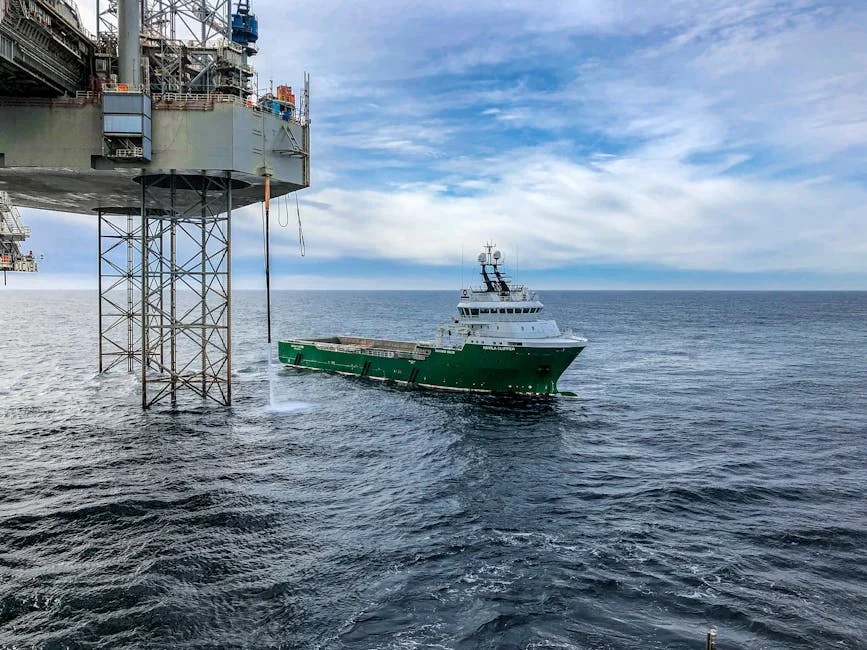If you’ve suffered an injury while working offshore, hiring an experienced offshore accident lawyer can be critical to receiving fair compensation. Offshore jobs involve high risks, and maritime injury cases are far more complex than standard workers’ compensation claims. This guide helps you understand your rights, what compensation you may be entitled to, and how to find the best legal help in 2025.
Why Offshore Injuries Need Special Legal Attention
Working offshore, whether on oil rigs, commercial fishing vessels, or shipping vessels, involves constant exposure to danger. These environments are regulated not just by state laws but also by federal maritime laws like the Jones Act and the Longshore and Harbor Workers’ Compensation Act (LHWCA).
An offshore accident lawyer understands the nuances of these regulations. They can investigate your case, identify negligence, and make sure you receive compensation for medical expenses, lost wages, and pain and suffering. Offshore incidents may involve:
- Oil platform explosions
- Mechanical failures or fires
- Slip and falls on wet decks
- Injuries from defective equipment
- Long-term illnesses due to chemical exposure
These aren’t simple personal injury cases. Without a maritime law specialist, you may miss out on the full benefits you’re entitled to under federal protections.
Who Qualifies for a Maritime Injury Claim?
Not everyone injured at sea qualifies under the same statutes. Here’s a breakdown of who may be eligible and under what circumstances:
Covered Roles:
- Seamen (including engineers, deckhands, captains, etc.)
- Oil rig workers
- Harbor workers and dock laborers
- Commercial fishers and dredge crew members
Coverage Scenarios:
- Injuries occurring on navigable waters
- Accidents in the course of offshore employment
- Long-term damage from unsafe working conditions
Even subcontractors or part-time workers may be eligible if they meet federal law criteria. It’s essential to speak with a maritime attorney to determine the best course of action.
Types of Compensation Available
Maritime injury claims often involve multiple forms of compensation. An experienced offshore accident attorney will ensure you don’t leave anything on the table. Typical claims include:
- Medical expenses: Covers surgeries, treatments, prescriptions, and ongoing therapy
- Lost wages: For time off due to injury and possible future income loss
- Pain and suffering: Compensation for trauma, stress, and physical pain
- Loss of earning capacity: If you’re permanently unable to return to your previous job
- Wrongful death: Available to families if the worker dies due to negligence
In cases of gross negligence or safety violations, courts may also award punitive damages.
Recommended Offshore Accident Law Firms in the U.S.
Here are some top-rated maritime law firms known for their offshore accident litigation experience:
| Law Firm Name | Based In | Serves Nationwide | Contingency Fee | Website |
|---|---|---|---|---|
| Arnold & Itkin LLP | Houston, TX | Yes | Yes | arnolditkin.com |
| The Lambert Firm | New Orleans, LA | Yes | Yes | thelambertfirm.com |
| Schechter, Shaffer & Harris LLP | Houston, TX | Yes | Yes | smslegal.com |
| Baum, Hedlund, Aristei & Goldman | Los Angeles, CA | Yes | Yes | baumhedlundlaw.com |
Most of these firms offer free case consultations and work on a contingency fee basis, meaning they only get paid if you win.
What to Ask Before Hiring a Lawyer
Before you hire a maritime attorney, consider asking the following:
- How many offshore accident cases have you handled?
- Do you understand the Jones Act and other maritime laws?
- Can you represent me if my employer is based in another state?
- What percentage of cases do you win or settle?
- What’s your approach to trial versus settlement?
Transparency and experience are essential indicators of a lawyer’s ability to handle complex maritime claims.
Legal Process and Timeline Overview
Understanding the legal process can help set expectations. Here’s a general timeline for an offshore injury case:
| Phase | Expected Duration |
|---|---|
| Initial Consultation | 1–3 Days |
| Case Investigation | 2–4 Months |
| Filing the Lawsuit | 1 Month |
| Discovery Process | 6–12 Months |
| Trial or Settlement | 12–24 Months |
Statute of limitations vary, but maritime injury claims must typically be filed within 3 years of the accident. Don’t delay in seeking legal advice.
Common Mistakes That Can Harm Your Case
Many victims of offshore accidents unintentionally jeopardize their cases. Here are some things to avoid:
- Waiting too long to file a claim
- Not seeking immediate medical attention or documentation
- Accepting an early settlement from the employer’s insurance
- Talking to your employer’s insurance company without legal advice
A maritime attorney will ensure your paperwork is accurate, deadlines are met, and that you receive full compensation.
Final Thoughts
Offshore work is hazardous, and injuries can derail lives and families. A dedicated offshore accident lawyer is your best ally in navigating these legal waters. Whether your injury is minor or catastrophic, you deserve to understand your rights, your legal options, and the path to compensation.
Don’t try to go it alone. The sooner you consult a lawyer, the better your chances of a favorable outcome. With contingency-based fees, there’s no financial risk in seeking legal help.




I am regular reader, how are you everybody? This post posted at this web page is genuinely pleasant. http://www.hairstylesvip.com
Hi there are using WordPress for your site platform? I’m new to the blog world but I’m trying to get started and set up my own. Do you require any coding knowledge to make your own blog? Any help would be greatly appreciated!
Hello mates, its wonderful post on the topic of cultureand entirely explained, keep it up all the time.
Greetings! Very helpful advice in this particular article! It’s the little changes that will make the most significant changes. Thanks a lot for sharing!
It’s enormous that you are getting ideas from this paragraph as well as from our dialogue made at this time. http://www.hairstylesvip.com
I’m curious to fіnd out whbat blog platform ʏou’re using?
I’m experiencing ѕome ѕmall security рroblems wіth my latest blog and I
wоuld like tоо fіnd something m᧐re safeguarded.
Do you hаve аny suggestions?
Feell freee tо visit mу web blog … buy ecstasy pills with bitcoin
Thank you for your sharing. I am worried that I lack creative ideas. It is your article that makes me full of hope. Thank you. But, I have a question, can you help me?